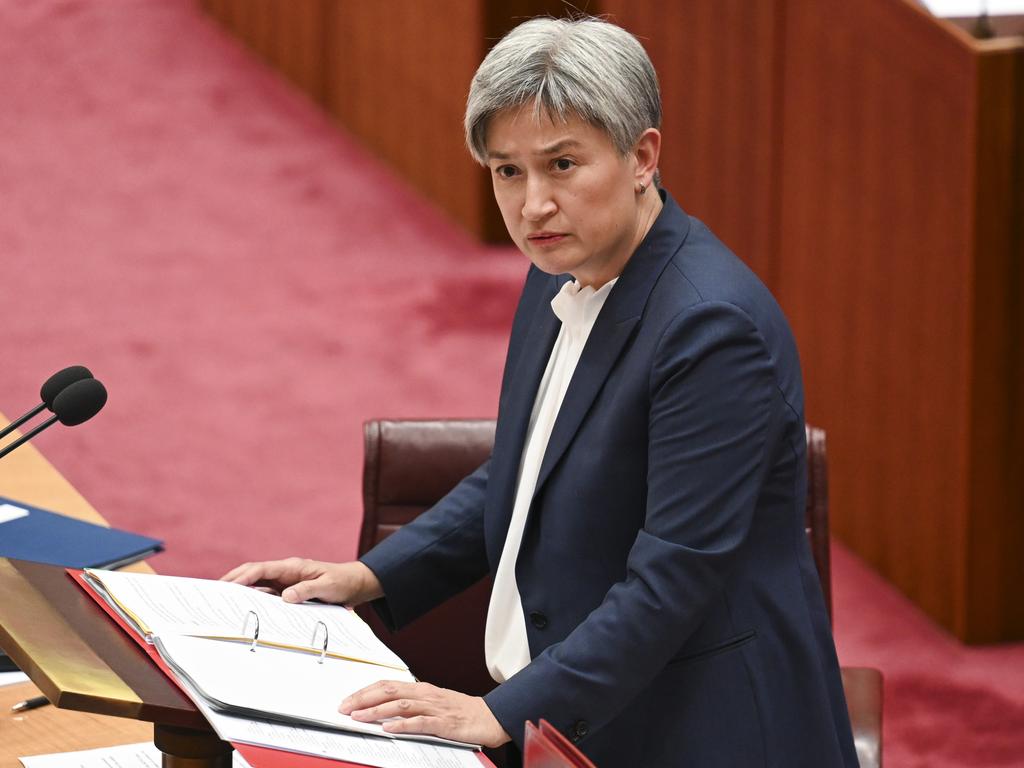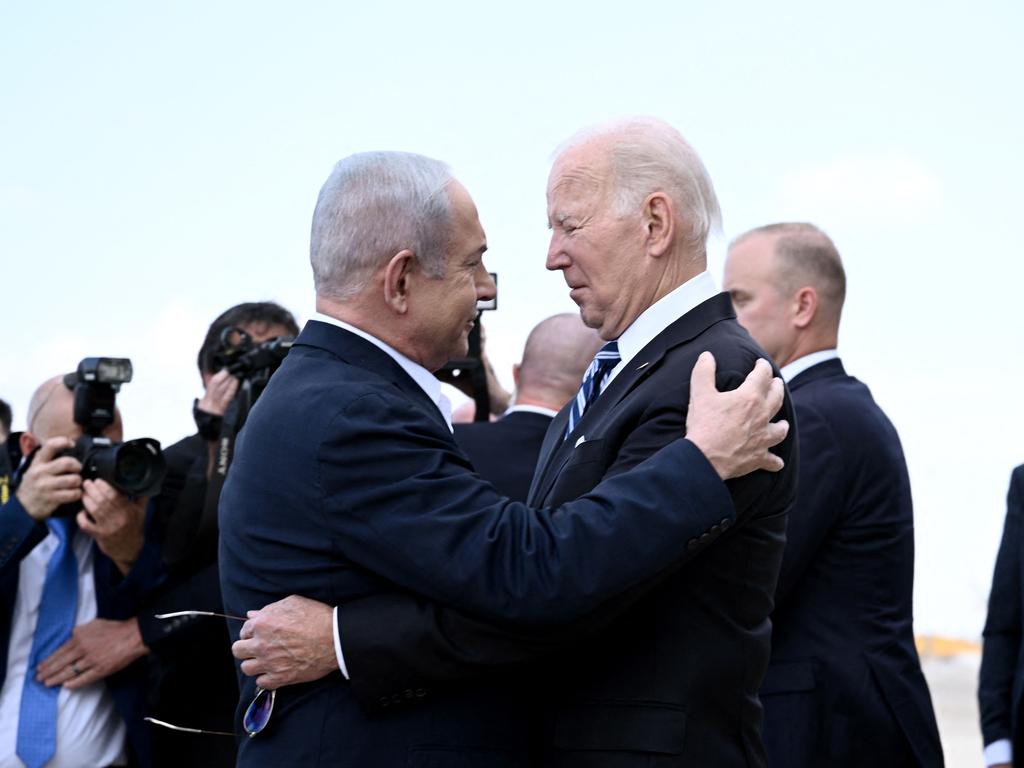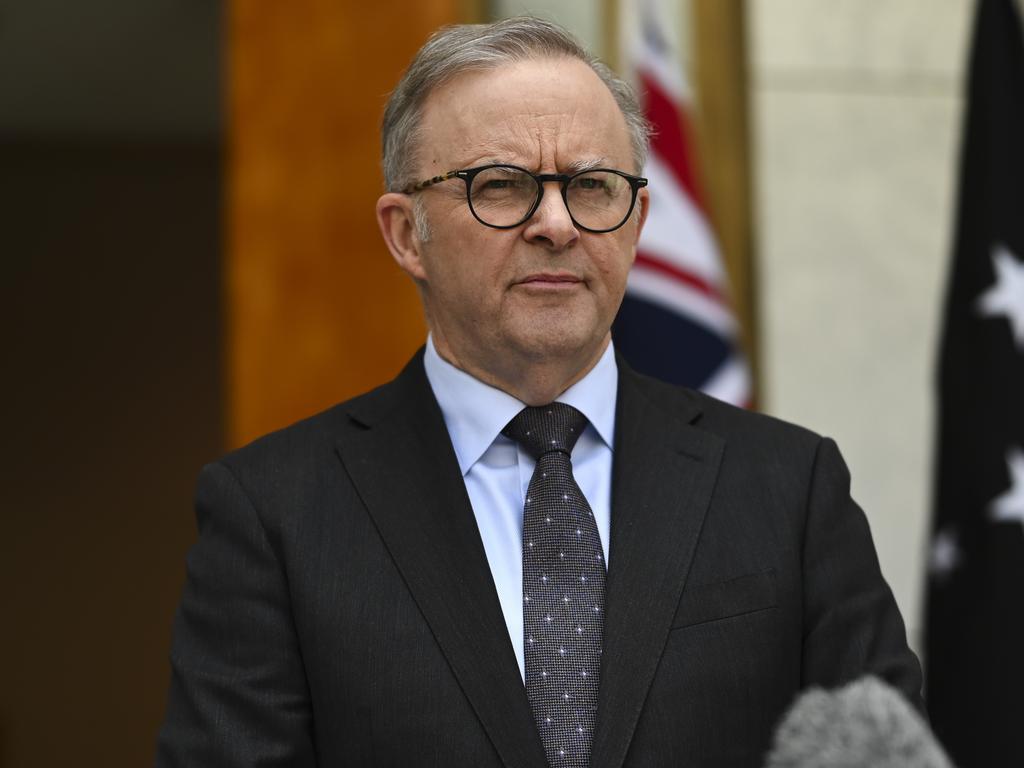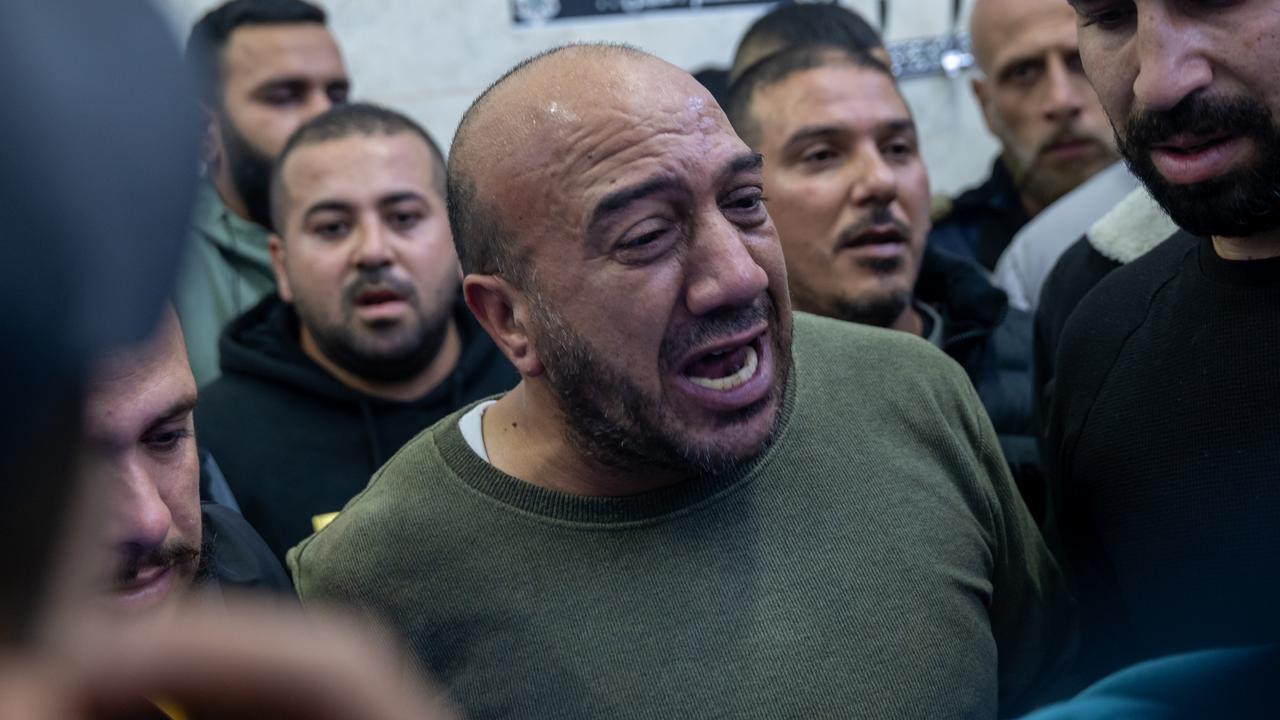
This article is more than
2 year oldANALYSIS
Israel and the United States are increasingly isolated. Australia, New Zealand, and Canada have broken ranks. But there are increasing signs President Joe Biden may be next.
On Wednesday, the UN General Assembly overwhelmingly backed a non-binding resolution demanding an immediate truce in the Gaza Strip to allow refugees access to urgently needed food, shelter and medical supplies. It was the same proposition the United States vetoed in the UN Security Council just days earlier – even as it authorised the emergency delivery of 150,000 tank rounds to support Israel’s advancing forces.
The assembly, comprised of 193 member nations, voted 153 in favour – including Australia. Another 23 abstained. Only 10 nations voted against it, including the US and Israel.
“Australia has consistently affirmed Israel’s right to defend itself,” Australian Foreign Minister Penny Wong told media after the UN resolution passed. “And in doing so, we have said as Israel must respect international humanitarian law, civilians and civilian infrastructure, including hospitals, must be protected.”

The Israeli government, meanwhile, remains defiant.
“Israel will continue the war against Hamas with or without international support,” its Foreign Minister Eli Cohen insisted. “A ceasefire at the current stage is a gift to the terrorist organisation Hamas, and will allow it to return and threaten the residents of Israel.”
This unwillingness to address the plight of civilians appears entrenched.
“We know the civil situation in the Gaza Strip is not an easy one,” Colonel Moshe Tetro said last month as the IDF shifted its focus towards what had previously been designated “safe zones” in Gaza’s south. “But I can say that there is no humanitarian crisis in the Gaza Strip,” added Tetro.
But a Tel Aviv University think-tank is warning Prime Minister Benjamin Netanyahu’s far-right government may now be alienating its most reliable ally.
“Despite the understanding that it is clearly in the best interests of the United States to support Israel until its military goals are achieved, Israel must recognise that a significant change in the position of the Biden administration – which faces increasing domestic and international pressure – could occur quickly, with far-reaching implications for Israel’s military and political manoeuvres,” argue Professor Chuck Freilich and Eldad Shavit of The Institute for National Security Studies (INSS).

Breaking ranks
“We are alarmed at the diminishing safe space for civilians in Gaza. The price of defeating Hamas cannot be the continuous suffering of all Palestinian civilians.”
This was the punchline of a joint statement issued by Prime Ministers Anthony Albanese, Justin Trudeau and Christopher Luxon during the UN vote.
“We recognise Israel’s right to exist and right to defend itself. In defending itself, Israel must respect international humanitarian law,” the prime ministers added.
“We support Palestinians’ right to self-determination. We oppose the forcible displacement of Palestinians from Gaza, the reoccupation of Gaza, any reduction in territory, and any use of siege or blockade.
“We emphasise that Gaza must no longer be used as a platform for terrorism. We reaffirm that [Israeli] settlements are illegal under international law. Settlements and settler violence are serious obstacles to a negotiated two-state solution.”

Israel launched the campaign after Hamas took advantage of the Netanyahu government’s repositioning of forces to support illegal ultra-Orthodox settlers in the West Bank. Terrorists killed some 1200 people and took about 240 hostages.
The subsequent two months of war have resulted in the deaths of more than 18,000 Palestinians – with another 6000 missing, believed dead.
Israel disputes the toll but insists it has killed some 6000 Hamas fighters and captured another 1000. Hamas is believed to have a force of about 25,000 fighters in Gaza. Some 444 Israeli soldiers have lost their lives in the fighting.
But Netanyahu insisted on Thursday that the fighting would not stop.
“We’re continuing until the end, until victory, until Hamas is annihilated,” he told Israeli media. “I say this in the face of great pain but also in the face of international pressures. Nothing will stop us.”


Biden versus Bibi
President Biden has asked for an additional $US14 billion worth of military aid for Israel. But members of his administration are voicing growing unease that it may be used to kill and evict more Palestinian civilians.
Centre for International Policy think-tank vice president Dylan Williams says Congress cannot afford to treat the move as a “rubberstamp” exercise.
“Even amid the current war and the emergence of horrific new details of Hamas’s atrocities against Israelis in the south, the Netanyahu government advanced a budget earlier this month that would allocate the equivalent of tens of millions of new dollars to fund illegal settlement projects in the West Bank,” he writes in Foreign Policy.
“Despite these concerns, the Biden administration has shown distressing resistance to enforcing conditions on aid — a number of which already exist under US law — to ensure that US-funded and supplied arms are used exclusively for permitted purposes.”

But there are signs this resistance is beginning to crack – even at the very top.
Earlier this week, President Biden took aim at Netanyahu’s government while attending a Hanukkah festival (celebration of the Second Temple of Jerusalem) reception.
“One of the things that Bibi (Netanyahu) understands — but I’m not sure (coalition leader Itamar) Ben-Gvir and his War Cabinet do — is that Israel’s security can rest on the United States. But right now, it has more than the United States. It has the European Union. It has Europe. It has most of the world supporting it. But they’re starting to lose that support by the indiscriminate bombing that takes place.
“Israel has a tough decision to make. Bibi has got a tough decision to make. There’s no question about the need to take on Hamas. There’s no question about that. None. Zero. They have every right.
“But … you cannot say there will be no Palestinian state at all in the future. And that’s going to be the hard part.”
Ultra-Orthodox influence
Washington has stalled approvals for 20,000 assault rifles to be delivered to Israel over concerns they may be handed to illegal settlers in the West Bank.
Israel’s National Security Minister Ben-Gvir has made several requests for such rifles since October 7, saying he wants them to arm “civilian initial response teams”.
But Israeli media reports about a secret IDF Central Command document stating Ben-Gvir had ordered police “not to arrest violent settlers” has caused the White House to rethink their delivery.
Illegal Jewish settlers have killed hundreds of Palestinians and evicted many more from their homes in the occupied West Bank since the October 7 terror attack.

“These attacks do not arise in a vacuum: they are encouraged and approved by members of Israel’s most right-wing government in history,” says UCLA School of Law Professor Jonathan Zasloff.
He accuses ultra-Orthodox Israeli cabinet members Finance Minister Bezalel Smotrich and Ben-Gvir of having “empowered settlers to kill Palestinians”.
Ben-Gvir has used his powers to distribute assault rifles to his supporters inside illegal West Bank settlements. And Smotrich has redirected government funding to these settlements even as kibbutzim close to Gaza struggle to recover from October 7.
